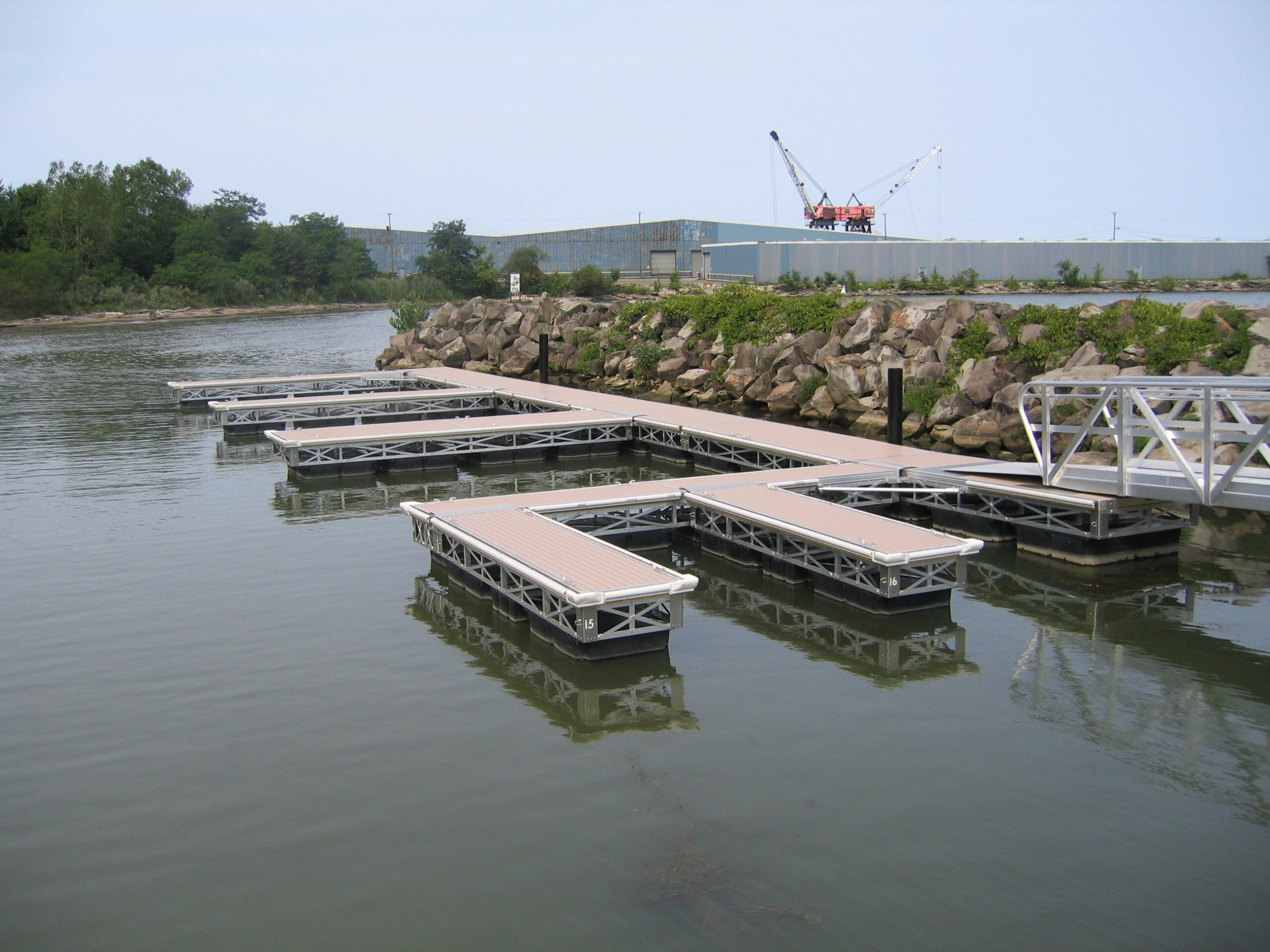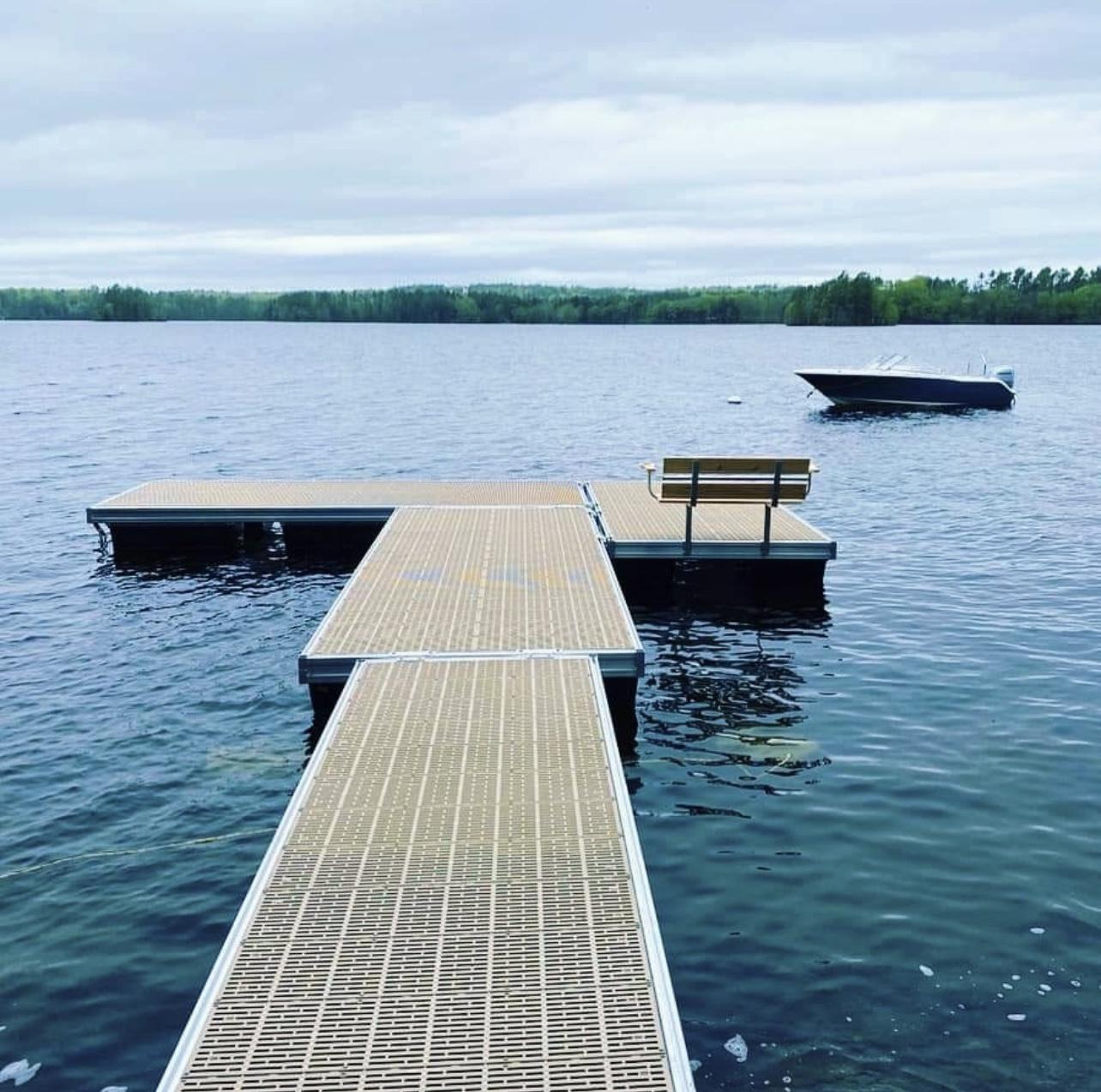Ingenious Floating Docks: The Future of Waterfront Gain Access To and Leisure
Floating Docks: The Suitable Choice for Versatile Water Gain Access To
Floating docks present an engaging option for a range of water access needs, providing flexibility that transcends typical mooring choices. The modular nature of floating docks helps with customization, providing to certain requirements.
Advantages of Floating Docks
Floating docks offer numerous benefits that boost water gain access to for various applications. Their capacity to drop and climb with transforming water degrees makes them particularly useful in atmospheres with fluctuating trends or seasonal variations. This flexibility guarantees that vessels can conveniently anchor without concern for the water's deepness, providing a trusted platform for entertainment, industrial, and commercial uses.
Additionally, floating docks are often built from sturdy materials that resist rust, making them suitable for long-lasting usage in aquatic environments. Their setup is normally much less invasive than conventional fixed docks, lowering the ecological impact and helping with quicker implementation (dock company). This flexibility enables much easier moving or reconfiguration according to customer demands or ecological adjustments
Security is one more crucial benefit; floating docks can provide stable access for people boarding or getting off from watercrafts and minimize the danger of accidents related to unstable surface areas. They can be created to fit a range of devices, such as fenders and cleats, boosting performance. In general, floating docks represent an effective remedy for boosting water gain access to across varied markets while promoting safety and security and ecological sustainability.

Sorts Of Floating Docks
Various types of floating docks accommodate different demands and environments, each created with details functions to optimize performance. One of the most common types consist of modular docks, which include interlacing areas that allow for simple modification and expansion. These docks are suitable for recreational use, as they can be tailored to fit numerous watercraft sizes and water conditions.
One more preferred alternative is the stationary floating dock, which remains anchored in location yet drifts with changing water levels. dock company. This kind is particularly suited for areas with very little tidal changes, supplying secure accessibility for angling or swimming. Additionally, there are drive-on docks, which feature a sloped design that allows boats to easily drive on and off, making them suitable for personal watercraft and smaller vessels
For commercial applications, heavy-duty floating docks are readily available, created from enhanced products to hold up against substantial lots and rough marine environments. Lastly, environmentally friendly floating docks make use of lasting products and styles to reduce environmental impact, frequently incorporating features like plant life to sustain regional wildlife. Recognizing the different kinds of floating docks guarantees that customers can pick the most appropriate remedy for their certain requirements.
Installment Refine Overview
An effective setup of floating docks requires careful planning and interest to detail to ensure optimum performance and safety and security. The preliminary step includes evaluating the website conditions, consisting of water depth, existing, and possible obstacles. This analysis informs the option of the suitable dock products and design customized to the specific atmosphere.
Next, acquiring essential licenses is critical, as lots of territories have policies pertaining to construction on water bodies. As soon as consents are protected, the installment can proceed. Begin by preparing the foundation, which may entail anchoring systems or pilings customized to the dock type and regional problems.
Adhering to the foundation configuration, set up the dock areas according try this out to manufacturer specs. Make certain that all parts are securely secured and lined up to hold up against ecological tensions. Setting the dock in the assigned location, guaranteeing it is degree and secure.

Maintenance Tips and Best Practices
After the installation procedure is total, continuous maintenance plays a vital duty in making certain the durability and functionality of floating docks. Routine evaluations should be conducted to determine any indicators of wear, wear and tear, or damages - floating docks. Look for any loosened fittings, splits, or splitting up in the dock sections, as these can jeopardize structural honesty
Cleaning the dock is necessary to eliminate debris, algae, and various other accumulation that can impact its look and safety and security. Use a gentle stress clean occasionally to maintain sanitation without triggering damage to the surface. In addition, using a safety sealer every few years can help improve longevity and withstand ecological wear.
Focus on the mooring lines and supports, ensuring they are safe and secure and complimentary from deterioration. Replace any type of abject components immediately to stay clear of hazards. Seasonal modifications might also be required; throughout severe weather, rearranging or reinforcing the dock can stop damages.
Applications for Floating Docks
Floating docks serve a wide variety of applications, dealing with both industrial and entertainment demands. In recreational settings, they offer smooth accessibility to rivers for activities such as boating, fishing, and swimming. Their adjustable nature permits setup in varying water degrees, making sure stable and safe access despite like this tidal fluctuations.
Commercially, floating docks are essential for marinas and waterside services. They assist in the docking of vessels, allowing effective packing and discharging of products. Their modular style allows for easy expansion or reconfiguration to accommodate changing organization needs, making them excellent for watercraft leasings, excursion operations, or angling charters.
Additionally, floating docks are used in environmental applications such as aquatic research and environment reconstruction. They can act as platforms for scientific studies, monitoring water top quality, or carrying out wildlife surveys without troubling sensitive communities.
In industrial contexts, floating docks are used in building and construction jobs, offering accessibility to hard-to-reach locations for equipment and employees. Their convenience, toughness, and minimal effect on the setting make them an optimum selection for a broad array of applications, boosting both functionality and ease of access in different water-based environments.
Final Thought
In conclusion, floating docks represent an optimum remedy for varied water access needs, owing to their versatility, toughness, and modular layout. Floating docks offer as a valuable asset for recreational, industrial, and environmental jobs, making sure trusted accessibility to rivers and advertising lasting techniques in marine settings.
Floating docks existing an engaging option for a range of water gain access to requires, using adaptability that transcends conventional mooring choices.Floating docks offer various advantages that enhance water access for various applications. On the have a peek at these guys whole, floating docks represent an efficient service for improving water access throughout varied markets while advertising security and environmental sustainability.
Another preferred choice is the stationary floating dock, which continues to be secured in location but drifts with transforming water levels.In conclusion, floating docks stand for an optimal remedy for varied water accessibility requires, owing to their versatility, longevity, and modular style.